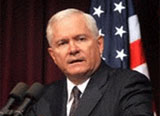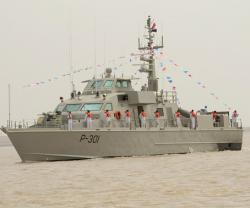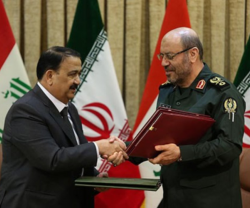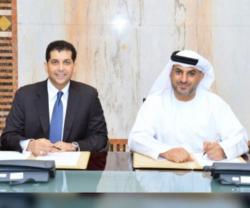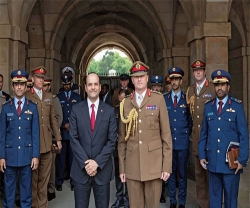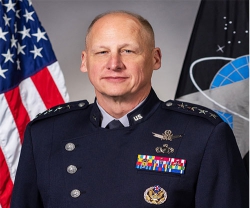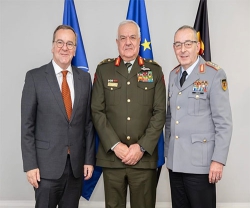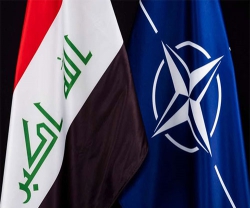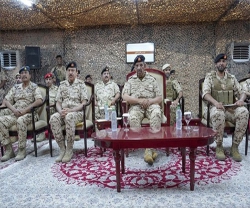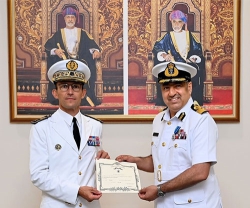After meeting with Massoud Barzani, President of the semi-autonomous Kurdish region of northern Iraq, Gates told reporters that the Kurds are interested in an extended US military presence, although the central government in Baghdad has publicly indicated it believes Iraqi security forces can stand on their own after the scheduled US departure Dec. 31.
“I have the impression that there is interest, so I’m hopeful that Iraqi leaders will consult and let us know one way or the other,” Gates said, adding he told the Kurds, as well as senior Sunni and Shiite leaders in Baghdad, that “time is running out.”
All US troops are scheduled to be out of Iraq by the end of this year under a deal negotiated in 2008 by the administration of President George W. Bush. But it became clear during Gates’ 2-day Iraq visit that an extension is increasingly likely - despite repeated public statements by Iraqi Prime Minister Nouri al-Maliki and other Iraqi officials that US troops are not needed any longer.
US officials, including at least some top military officers, believe that Iraq has significant gaps in its defense capabilities, including a lack of air power to defend its own skies. They see this as posing a risk, in the absence of US forces, and that political and security gains that have been achieved over the past 8 years could unravel.
In remarks to US troops at Camp Marez, Gates said that in his talks with a full range of top Iraqi officials they had indicated an interest in an extended US troop presence.
“We’re open to that,” Gates said. “It obviously would be a presence that’s a fraction of the size that we have here now.” He mentioned no numbers, but there currently are about 47,000 US troops in the country.
Asked on how much longer the US would stay if requested, Gates replies “that would be part of any negotiation,” adding it could be for “a finite period of time” at an agreed number of troops, or it could be a phased drawdown for two or three years beyond 2011. Or, he said, it could be a long-term US role to advise and assist Iraqi security forces “that just becomes part of the regular military-to-military relationship.”
Later, Gates flew to Abu Dhabi for late-night talks with Crown Prince Mohammad bin Zayed al Nahyan, Deputy Chief of the UAE Armed Forces. Gates was expected to thank him for the UAE’s decision to support an international military campaign to protect civilians in Libya. They also were to discuss the wave of popular unrest that is sweeping across the Arab world.
Source: Associated Press (AP)

